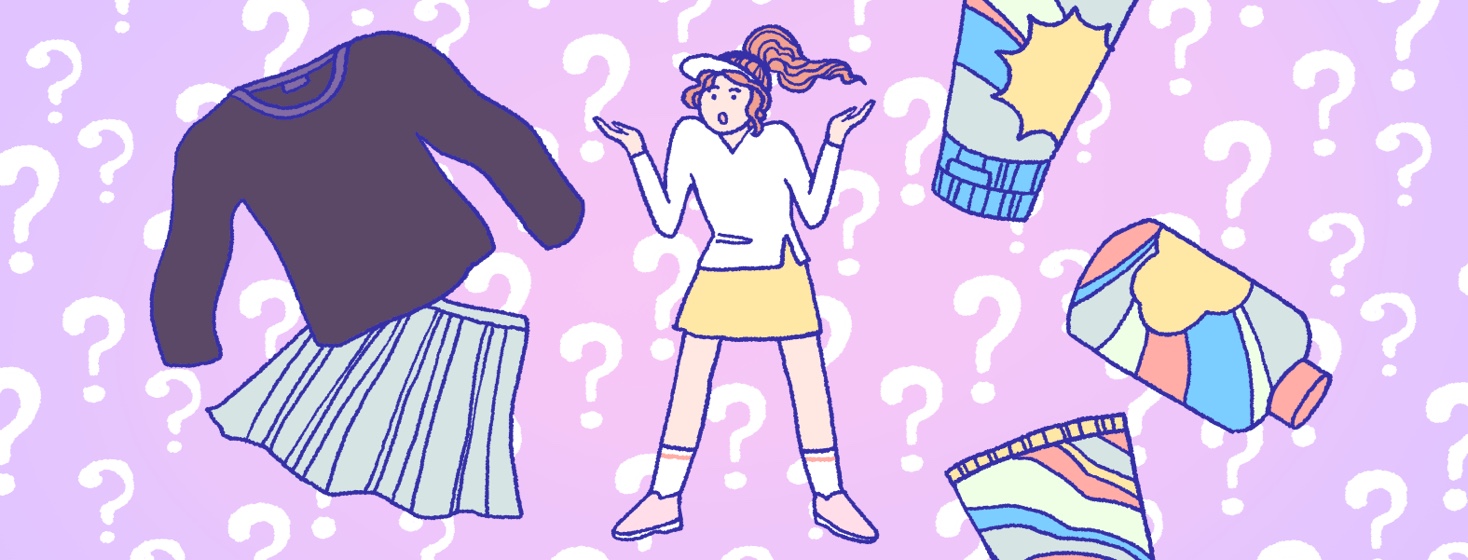Confusion Over SPF and UPF: What's the Difference?
A friend who has been buying sun protective clothing said he had seen a lot of UPF labeling lately. He wondered why he had been seeing less SPF labeling. I said I thought they were interchangeable. But guess what? I was wrong. I looked it up and found that UPF is for clothing and SPF is for sunscreen. I’m probably not the only one who has had this wrong.
SPF vs. UPF
The confusion was obvious the other day at tennis. A player told me about the SPF clothing she had bought. I said across the net that I had just looked it up and that SPF is not a fabric labeling. I said UPF is for clothing and SPF is for the stuff you put on your skin. My friend shrugged. I don’t think it mattered to her. Maybe I sounded like what we used to call a smarty pants. I was probably being annoying. Knowing the difference isn’t a matter of life or death. As long as you set out to find fabric with sun protection qualities, or sunscreen to protect your skin, you’re heading in the right direction.
But as informed consumers, it’s good for us to know.
What's the techincal difference?
Here’s what the Skin Cancer Foundation says: “Ultraviolet Protection Factor (UPF) indicates how much UV radiation (both UVB and UVA) a fabric allows to reach your skin. For example, a UPF 50 fabric blocks 98 percent of the sun’s rays and allows two percent (1/50th) to penetrate, thus reducing your exposure risk significantly...A UPF of 30 to 49 offers very good protection, while UPF 50+ rates as excellent.”1
“Sun Protection Factor, or SPF, is based on the time it takes for UV-exposed skin to redden; if you burn after 20 minutes, if used correctly, an SPF 15 sunscreen may protect your skin 15 times longer.”1
It would seem like very high SPF would offer the best protection, but not everyone is a fan of super high SPF.
Mislead by high SPF numbers
The Environmental Working Group explains: “Many studies have found that people are misled by the claims on high-SPF sunscreen bottles. They are more likely to use high-SPF products improperly and as a result, may expose themselves to more harmful ultraviolet radiation than do people who rely on products with lower SPF values.”2
The group’s post on the topic continues, “Sunbathers often assume they get twice as much protection from SPF 100 sunscreen as from SPF 50. But the extra protection is negligible. Properly applied SPF 50 sunscreen blocks 98 percent of UVB rays; SPF 100 blocks 99 percent. When used correctly, sunscreen with SPF values between 30 and 50 offers adequate sunburn protection, even for people most sensitive to sunburn.”2
I know what they mean about higher SPF giving you a false sense of security. You could just look at that high number and think that you have hours and hours to sit in the sun. But these sunscreens don’t offer you extra protection for the time that you are in the sun.
Does the color of UPF clothing matter?
Now, back to the clothing. Here’s something else I didn’t know. “Dark or bright colors keep UV rays from reaching your skin by absorbing them rather than allowing them to penetrate. That’s why these colors offer better protection than lighter shades,” according to the Skin Cancer Foundation.1
So what about all those players in their tennis whites? And what about the UPF shirts that I have? I have THREE white ones and one pink one. The reason for the lighter colors is of course that they are more comfortable. The dark ones, though giving you more protection, could also make you MISERABLE on a hot day. And if your goal is to have fun playing a sport such as tennis, you have to wonder what the point is if you’re thinking more about your sweat than hitting the sweet spot on your tennis racquet.

Join the conversation